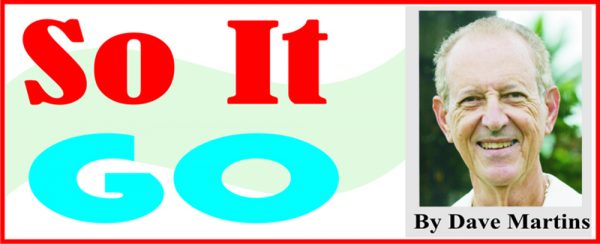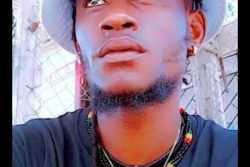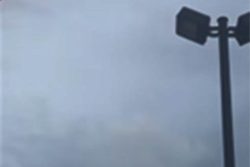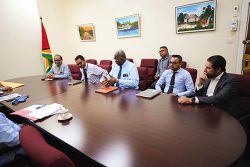 Media experiences are an integral part of your life if you are a musician creating songs for public consumption and, as you would imagine, they can vary from exhilarating to painful, and of course you never know in advance which it will be. I won’t go into details of the painful interviews, but feel obliged to mention the positive ones conducted by the likes of Vic Fernandes of Barbados radio fame, Ron Robinson here, Sam Ghany of Radio Trinidad, and the original Sterling Ebanks of the Grand Cayman’s Radio Cayman.
Media experiences are an integral part of your life if you are a musician creating songs for public consumption and, as you would imagine, they can vary from exhilarating to painful, and of course you never know in advance which it will be. I won’t go into details of the painful interviews, but feel obliged to mention the positive ones conducted by the likes of Vic Fernandes of Barbados radio fame, Ron Robinson here, Sam Ghany of Radio Trinidad, and the original Sterling Ebanks of the Grand Cayman’s Radio Cayman.
This week, after the happy experience I wrote about last week with the amazing Merundoi puppets at Guyana’s National Commission for UNESCO during their Year End Review, I was wondering what was in store for me when I agreed to a year-end chat with the folks at Lite 104.1FM in Georgetown but this must be my time to buy some lottery tickets because that Saturday morning encounter was also in the happy category as I spent a fast-moving hour or so with the programme’s host, Natasha Azeez, and her studio assistant Justin. Apart from the obvious biggies like Blade Of Grass, Is We Own, Where Are Your Heroes, etc., I was impressed with the span of Tradewinds material they were familiar with, and particularly how relaxed I was made to feel by the Lite FM crew. Natasha didn’t ask me the kind of “how it was growing up” questions one is often hit with, but was more interested in how song ideas arrive and I took some time to reiterate, as I have recently in print, that the song writing thing is really a gift one is born with, like the ability to run fast, or shoot straight, but that especially the ability to find rhymes readily is in that “born with” category.
It’s something I can do quickly, so that I can produce, in a few minutes, a fairly passable rhyming commentary on any reasonable topic. I’m going back some years, but I have often related how quickly I wrote the almost totally completed lyrics for Not A Blade of Grass, after the late Pat Cameron had urged me to write a song about the Venezuelan encroachment at Ankoko in our history. By “quickly”, I mean, maximum four hours in my Pegasus hotel room with an acoustic guitar borrowed from Bobby Hunter. (As an aside, almost every one of the 118 songs I have written for recordings, every one was written on the friendlier “acoustic guitar”, not the electric one I play when I perform.)
Natasha was particularly curious about the song ideas themselves – what did I see in an idea that suggested “song” to me, and it’s a perfectly natural question but as I said to her the truth is that I don’t have a specific answer. Something is at work in the brain of creative people when they’re generating their work – whether a piece of music, of a poem, or a dance routine, or a dramatic scene. Some mysterious force – often referred to as “the hand of God” – is at play in that scenario, virtually steering you where to go and even how to go, and it is such an unerring thing that it also tells you when what you’ve just written is not good enough or, literally, does not work. I can’t tell you in precise words how that operation takes place, I don’t know myself, but I do know that every time it happens I am aware. Indeed I can be sometimes aware of the problem and, in my haste to finish the piece I have sometimes let it go, but every time, without fail, that word, or that phrase, or that sentence comes around it will jar something in me saying, “fix that”, and that interjection will continue to come until I give in and rework the offending part.
Another interesting question had to with why one topic and not something else. I didn’t go into this too much on the air, mainly because I don’t know myself. It’s an automatic response, something that almost presents itself to me, rather than my selecting it, but I recognise it immediately; it is almost an “ah ha” reaction, like something becoming clear.
One of the songs Natasha played, Boyhood Days, is an example. As a youngster in short pants up and down West Dem, I was not deliberately writing down in a notebook what became the words of the song, but 12 years later in Canada, and one song short for a new album, I looked back at my youth in Guyana and, truthfully, there was the song, waiting for me = “hiding in the backyard smoking a cigarette, and when they gie yuh castor oil yuh living in de toilet.” Both of those commonplace experiences for a youngster growing up, something we all know about, a piece of our life – perfect for a song. In the same way, “the first time you ask a girl and she tell you, no.”
This kind of media interview can go in all kinds of directions, sometimes leading to dead ends, or in a broadcast, to dead air. Natasha picked her way well. Asking me, in Christmas season, about “Masquerade Band” and particularly “Is We Own” and whether I had a favourite song and my answer there was not a single one but several including yes, Is We Own, but also “Where Are Your Heroes, Caribbea” (notice no “n”) and a song, popular in Cayman where I lived for 25 years, called “Ivan” about the hurricane that hammered that country in 2004, leaving the place, even five months after, with only half of its hotel rooms usable. I didn’t go into this with Natasha – it’s a story outside Guyana – but that song is one of my favourite recordings both for the song itself (I love Cayman and it pained me to see it hammered) and for the striking contribution from Tradewinds keyboard guy Jeff Japal, a Grenadian, who played some wonderful fills weaving in and out of the music. Sweet stuff.
I cannot end this column without reiterating what I said to Natasha when she asked about advice for composers. Emphasising I’m reluctant to offer unsolicited advice to others, I did stress the need for all people doing creative work not to settle for the sub-standard, to always aim for making the song the best it can be, because when you accept what you know to be defective you will hear that recording somewhere, when you least expect it, and end up holding your head in regret at not fixing the error. Natasha said she liked the phrase, “make it the best it can be”, so for you creative types reading this…please, always make it the best it can be. That way you can be sure that producers like the Lite FM lady will put your work on the air…and you won’t end up holding your head.
Happy New Year composers, and make it the best it can be.







